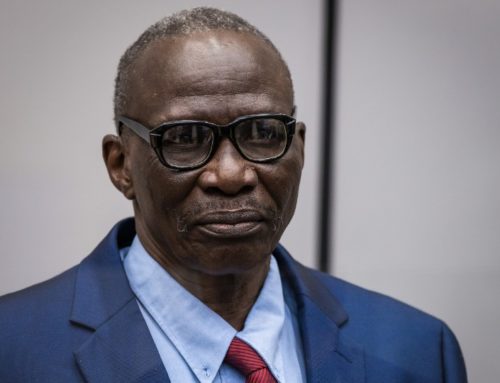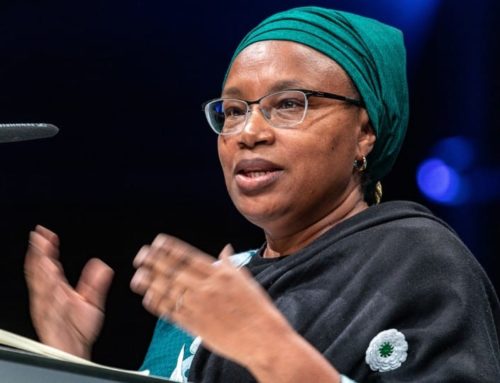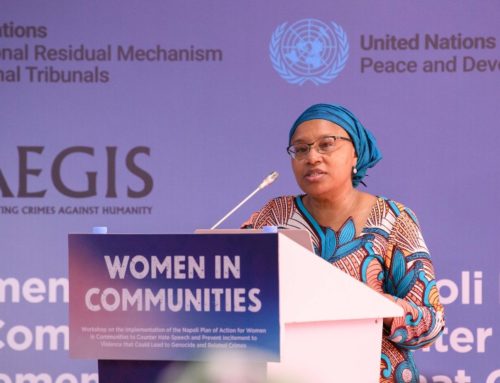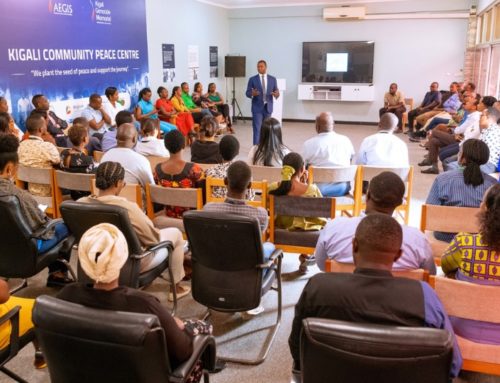 In the 7th plenary session of the Parliamentary Assembly of the Mediterranean (PAM) in Malta, 12-13 October 2012, Aegis’ Special Representative Dr Mukesh Kapila outlined Aegis’ vision for a new global parliamentary grouping dedicated to the prevention of crimes against humanity. The full text of his address follows.
In the 7th plenary session of the Parliamentary Assembly of the Mediterranean (PAM) in Malta, 12-13 October 2012, Aegis’ Special Representative Dr Mukesh Kapila outlined Aegis’ vision for a new global parliamentary grouping dedicated to the prevention of crimes against humanity. The full text of his address follows.
Mr Chairman, Excellencies, Ladies and Gentlemen
I am honoured to have this opportunity to address such a distinguished gathering of parliamentarians.
I speak on behalf of the Aegis Trust. The Aegis Trust campaigns on crimes against humanity and genocide. Aegis developed from the Holocaust Memorial and Educational Centre in the UK and helps to run the Kigali Genocide Memorial in Rwanda.
It promotes remembrance of those who have suffered and died from genocide, and conducts research, policy, education and advocacy so that society may learn the lessons of the past, ensure accountability and justice, and thereby prevent future crimes against humanity.
Aegis works closely with a range of partners, including governments, NGOs, and educational and academic institutions around the world. It provides crucial support to the All Party Parliamentary Groups on the Prevention of Genocide and Crimes Against Humanity in the UK and Canada.
Established in 2000, the word Aegis means ‘shield’ or ‘protection’, reflecting the need to protect vulnerable people against genocide and crimes against humanity. Sadly, the necessity for this has been only too evident through all ages and in all cultures and continents.
Indeed, the past century has been the bloodiest in human history. According to some researchers, the 20th century alone saw an estimated 192 million killed in mass atrocity crimes compared to the 133 million killed in the previous 7000 years. Allowing for world population growth, this still represents a 7-fold increase in killing rates.
Of course, the vast majority of these deaths – 9 out of 10 in the most recent conflicts – are unarmed and innocent civilians. Furthermore, the consequences last well beyond the immediate effects in terms of death, disease, and destruction. The impact of genocide and other crimes against humanity is felt across time as the seeds of hatred so sown are reaped manifold by generations to come.
I had the misfortune to witness the last two genocides of the 20th century and the first two of 21st century. I was present in Rwanda, as a British government official, in the immediate aftermath of the 1994 Rwanda genocide and saw, alongside your esteemed secretary general Sergio Piazzi, what genocidal violence looks like. I also saw what happened in Srebrenica. And then in 2003-04, as the head of the United Nations system in Sudan, I experienced the unfolding of the horror in Darfur. This has since been recognised as the first genocide of this century and has earned the still-serving President of Sudan Omar al-Bashir and key figures in his government indictments by the International Criminal Court. While justice is awaited, the suffering of Darfur continues even as the same regime in Sudan inflicts genocidal violence on another group of its own citizens – this time in the Nuba Mountains, as I personally witnessed earlier this year.
Over the ages, every continent has demonstrated its potential and capacity to unleash the special horror we call genocide. In that sense, no one culture or group can claim moral superiority over another. While each situation may have its own specificities – its particular roots and triggers – certain features stand out in common, when we reflect on the lessons of history.
First, genocide is committed through planned intent and organised effort by a controlling authority or government because only it can muster sufficient means and capabilities to carry out such systematic – and often, very large-scale – violence.
Second, all such crimes are preceded and accompanied by the promotion of exclusionary ideologies which deliberately target a group of people on account of their ethnic, social, religious or other distinctive aspect of identity.
Third, such crimes happen in autocratic settings. Though bad things can, of course, happen in any country, history has proven that only dictatorships commit mass atrocities by design.
Fourth, impunity for crimes against humanity creates a sure climate for their recurrence. If the perpetrators of such evil are not brought to justice, the signal sent is that you can get away with mass murder. Similarly, it has been shown time and again that reconciliation and peace cannot happen or last without accountability and justice also being done.
Fifth, though genocide and other crime against humanity are thought up and planned by evil-minded leaders, they need gullible followers to give full effect to their monstrous schemes. Hence the importance of continuous education and vigilance to build and sustain robust societies that do not fall prey to those who preach such vile ideologies.
It is for all these fundamental reasons that your role as parliamentarians is crucial. It is you who make laws, set standards in society, hold governments to account, and provide a voice for those with a grievance or who are threatened through exclusion.
By doing all this, you provide the practical means to prevent the bad and ugly from taking hold in society, get the wrongs righted, and to protect those who are vulnerable.
Furthermore, networks such as this Parliamentary Assembly of the Mediterranean are vital because you have realised that in an interconnected, globalized world, what happens in one place affects well-being and safety elsewhere. Nowhere is this more true than when a crime against humanity in one place is a crime against all humanity everywhere. That is why what happens inside Sudan or Syria is a legitimate concern for everyone and all have the shared responsibility to act.
My suggestion to PAM is to consider supporting a global parliamentary grouping dedicated to the prevention of crimes against humanity. Its specific objectives may be to
• First, ensure that all countries have clear and relevant laws in place that bear directly on genocide and crimes against humanity, in line with international human rights norms and standards
• Second, to ensure that all countries have mechanisms by which the executive authorities i.e. governments are held accountable by parliaments domestically for their obligations to uphold such laws
• Third, to promote cooperation in supporting international institutions that have been set up to protect and advance this essential aspect of human security, including the modernization and further development of international laws necessary to keep pace with the fast-changing world.
As events right here, in the southern part of the Mediterranean region have amply demonstrated, never have expectations been so high, and opportunities so great, to make a fundamental shift in how we live together and relate to each other. And there is no greater test of the democratic ideals that you exemplify than to use your privilege as parliamentarians to insist on redress and justice for the victims of these most heinous crimes against humanity, and accountability of those who commit them.
I look forward to your views. Thank you.





